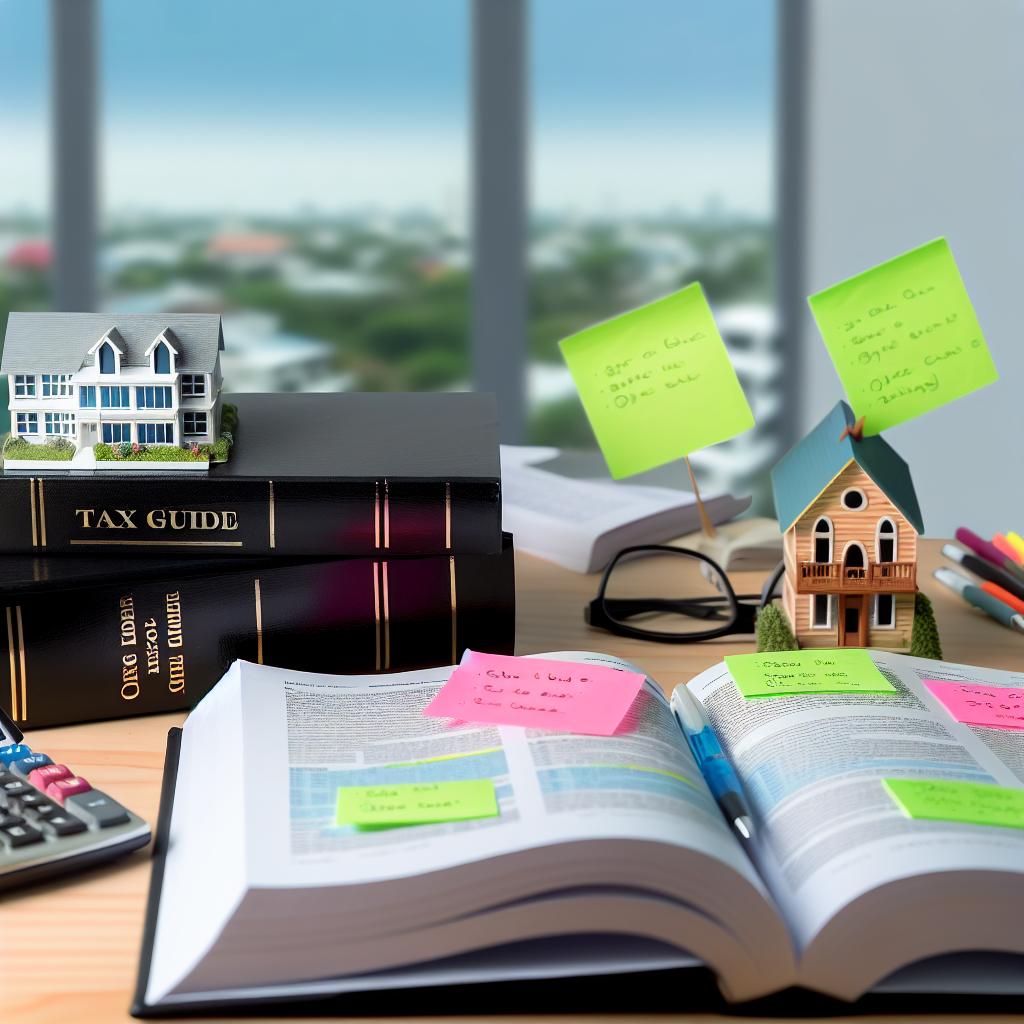Tax implications of owning a second property

Understanding the Tax Implications of Owning a Second Property
Owning a second property can be an attractive option, offering potential benefits such as rental income, capital appreciation, and increased asset diversification. However, it also comes with certain tax implications that must be understood to make informed financial decisions.
Property Tax
When you own a second property, you are generally liable to pay property tax on it. This recurring expense is calculated based on the assessed value of the property. The rate can vary significantly depending on the location and local tax regulations. It’s essential to consult the local municipal guidelines to determine the exact amount you owe.
In addition to the standard property taxes, owners should be aware of any special assessments or levies that might apply. These could include charges for improvements in the area, such as the installation of new roads or utilities, which can affect the value of the property. Understanding the full scope of property tax liabilities helps in budgeting for both current and future expenses associated with owning a second property.
Income Tax on Rental Income
If you decide to rent out your second property, any income generated from it is taxable. Rental income must be reported on your tax return, and you will be required to pay income tax accordingly. This income can include not only the rent you receive but also other associated payments, such as advance rent or security deposits used as rent.
Reporting rental income accurately is crucial. Any misreporting can result in penalties or additional tax liabilities. Therefore, maintaining good records of all transactions related to rental income is essential. A systematic approach to recording rental transactions can make tax reporting much easier and more accurate, and it can also aid in maximizing allowable deductions.
Deductions and Allowances
To offset the tax liability from rental income, various deductions may be available. Standard deductions include mortgage interest, property insurance, maintenance costs, property management fees, and depreciation. These can significantly reduce your taxable income. It’s advisable to keep detailed records of all expenses related to the property to ensure you claim all possible deductions.
Besides these standard deductions, property owners might also explore other less common deductions that can further reduce taxable income. These could include costs incurred for certain improvements to make the property more energy-efficient or expenses related to advertising vacancies. However, these deductions need to meet specific eligibility criteria set by tax authorities.
Capital Gains Tax
If you decide to sell your second property, you will likely be subject to capital gains tax on any profit made from the sale. The amount is generally calculated as the difference between the sale price and the property’s purchase price, adjusted for any improvements made during ownership.
It’s important to understand how capital gains tax applies to your specific situation, as factors like the duration of ownership and the purpose of the property can affect the tax rate. Additionally, methods such as cost tracking for property improvements and strategic sales timing can be utilized to potentially reduce capital gains tax liabilities.
Primary Residence Exemption
Unlike your primary residence, a second property does not qualify for the primary residence exemption. This means that capital gains tax will apply. However, certain strategies, such as timing the sale or utilizing tax-deferred exchanges, might help mitigate the tax burden. It’s wise to consult a tax professional for personalized advice.
Using strategies like tax-deferred exchanges can be complex, involving specific timelines and rules. They allow the deferment of taxes by reinvesting proceeds into a similar property, thereby postponing immediate tax impact. These strategies require a thorough understanding of tax laws and are best navigated with the help of a tax professional.
State and Local Taxes
Apart from federal taxes, owning a second property may also incur state and local taxes. These can include state-level income tax on rental income and local transfer taxes. Understanding the regional tax landscape is crucial to avoiding unexpected financial obligations.
For instance, some states might have unique rules on inheritance tax or estate tax that could impact property ownership. It’s important to be aware of any varying tax implications that local jurisdictions might impose. Consulting local tax resources or professionals can provide clarity and ensure compliance with all pertinent laws.
International Property Ownership
For those who own a second property abroad, additional tax considerations apply. Foreign rental income is typically subject to taxation in the country where the property is located and your country of residence. Various international tax treaties may provide relief to prevent double taxation, but these agreements can be complex and may require professional guidance.
Navigating international property ownership requires familiarity with both domestic and foreign tax regulations and treaties. Many countries offer credits or deductions for taxes paid abroad to minimize the burden of double taxation, but these provisions can vary widely. Understanding these subtleties entails a considerable amount of research or professional assistance.
Conclusion
The tax implications of owning a second property are multifaceted and can significantly influence your investment’s profitability. By comprehensively understanding these aspects, such as property taxes, income from rentals, capital gains, and international considerations, you can better manage your financial responsibilities. For tailored advice and to ensure compliance with tax laws, consider consulting with a tax advisor or financial expert.
Nevertheless, staying informed and proactive about tax obligations can lead to more effective financial planning and potentially enhanced returns from property investments. Monitoring changes in tax legislation both domestically and internationally is also essential to optimizing the financial outcomes of owning a second property.
